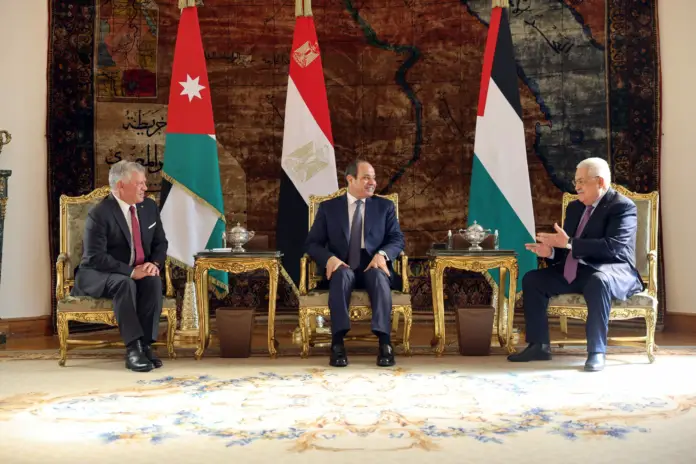A 3-day Arab summit convened in Jordan’s port city of Aqaba, bringing together leaders from the region, including Jordan’s King Abdullah II, Egypt’s President Abdel-Fattah Al-Sisi, and Palestinian President Mahmoud Abbas.
During this summit, a significant warning was issued concerning Israel’s potential reoccupation of parts of the Gaza Strip.
The leaders, in a joint statement from Jordan’s Royal Court, called for immediate action to halt Israeli aggression on Gaza and to safeguard the defenseless civilian population.
They specifically expressed concern over any attempts to reoccupy parts of the Gaza Strip or establish safe zones within the territory. Additionally, the leaders urged measures to enable Gazans to return to their homes.
The joint statement reiterated the leaders’ rejection of any Israeli plans to forcibly displace Palestinians from the West Bank and Gaza.
Furthermore, they rejected all attempts to undermine the Palestinian cause and emphasized the interconnectedness of Gaza and the West Bank, which they considered integral parts of the Palestinian State.
Addressing the humanitarian situation in Gaza, the leaders emphasized the urgent need to provide sustainable and sufficient humanitarian aid to alleviate the dire conditions faced by the enclave’s population.
The context for this summit lies in the ongoing conflict in the region, with Israel conducting military operations in the Gaza Strip since a cross-border attack by the Palestinian group Hamas on October 7.
The conflict has resulted in a significant loss of life, with local health authorities reporting casualties among both Palestinians and Israelis. However, there have been revelations suggesting discrepancies in the reported numbers, with questions raised about the accuracy of the figures.
The leaders underscored their commitment to finding a resolution to the conflict and ensuring the well-being of the affected populations.
The situation in Gaza has resulted in a high percentage of Gazans being displaced, significant food insecurity, and challenges in delivering humanitarian aid to those in need.
The leaders vowed to address these pressing issues and work towards a sustainable solution to the broader conflict in the region.







